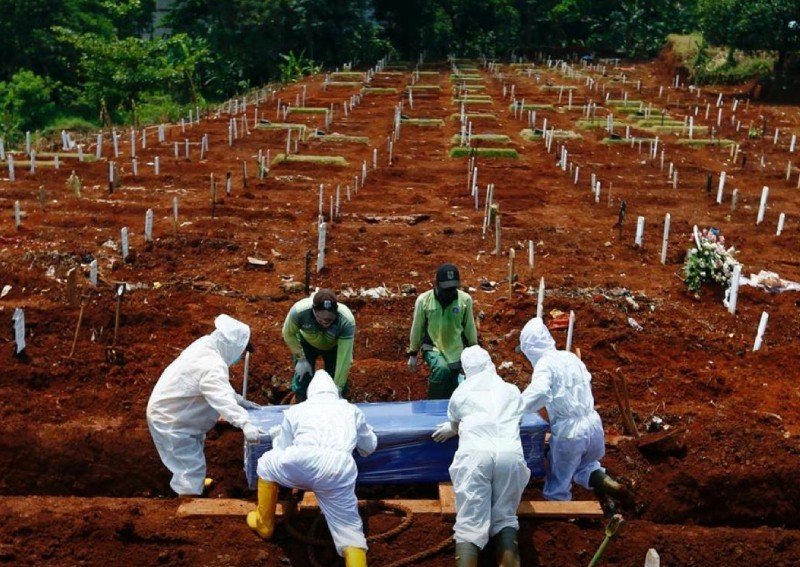JAKARTA – Gravedigger Junaedi Bin Hakim toils until nearly midnight almost every day in a Jakarta cemetery, preparing plots for fellow Indonesians amid a renewed spike in coronavirus burials.
“I am worried and scared but this is part of my job and responsibilities,” said 43-year-old Junaedi, who prior to the global pandemic routinely left work at 4pm to spend time with his young family.
Jakarta has been the epicentre of the outbreak in Indonesia, where authorities have struggled for months to contain the virus.
The country has reported nearly 245,000 cases, including 9,553 deaths, the highest levels in southeast Asia.
Unlike many other Asian capitals, Jakarta authorities did not impose a strict lockdown, opting for more calibrated social restrictions, an approach that some health experts have said was too lax.
After an initial surge at the start of the pandemic, burials in Jakarta dropped to around 20 to 30 on average per day in July and August.
But they shot up in September to between 50 and more than 60 per day, data from the city government showed.
As ambulances carrying victims snaked around the entrance of Pandok Ranggoon cemetery, Junaedi said it could be full within two months at the current rate of burials.
“Usually, we bury around 10 people everyday. But for the last few days, when we handle Covid-19 burials, it has reached an average of 30 per day,” he said.
Jakarta Governor Anies Baswedan said more land had been earmarked in case that happens.Read AlsoIndonesians made to dig graves as punishment for not wearing face masks
The number of deaths across Indonesia has averaged 114 per day over the past week, up from 64 a month ago, according to a Reuters tally based on official data.
Baswedan said in an interview last week that while not all burials were definitely Covid-19 patients, “I don’t see any other disease going on in our city”.
Baswedan said the rise in funerals, along with strain on the city’s healthcare system, were the reasons why he reinstated social restrictions in Jakarta last week, which prohibit working from offices except for essential businesses, as well as limit the capacity of public transport and places of worship.
“We had never experienced this kind of jump,” Baswedan said. “That’s why … we decided to pull a brake.”
For Junaedi’s wife, Karlina, her husband’s work is a source of fear for her small children, despite the health protocols being followed for burials.
“I still have two children at home so definitely I’m scared and worried,” she said.




